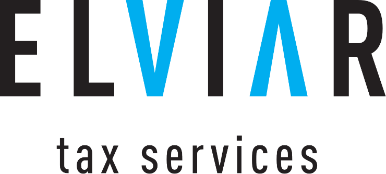Author Lionel van Rey
VAT deduction has always been an important topic for holding companies. The rules concerning the circumstances in which VAT on purchases is deductible are complex and continuously in development.
Last month another development was added to the long list of cases about this topic. In the Portuguese Sonaecom case before the EU Court of Justice, the Advocate General analyzed the question whether a holding company was entitled to deduct VAT on costs. In the situation at hand it concerned a holding company that incurred the costs to raise capital for the acquisition of shares in another company to which it intended to provide management services after the acquisition was completed. However, the acquisition never materialized and the holding company ended up re-allocating the raised capital by issuing an interest bearing loan to another group company. The issuance of a loan is a tax exempt activity that generally does not allow for VAT recovery. The questions before the EU Court of Justice revolve around whether the VAT deduction claimed by the holding company is justifiable.
It is established case law that a holding company that is not actively engaged in economic activities generally does not have the right to claim back VAT on costs. A passive holding company does not qualify as a VAT taxable person.
The complexity around the deduction of VAT on costs gravitates around situations in which holding companies (intend to) perform VATable economic activities besides their so called ‘non-economic activity’ of merely acquiring and holding shares in other companies. Such ‘mixed’ holding companies generally do qualify as VAT taxable persons, but the question remains to what extent they are allowed to deduct VAT on costs incurred. In the case at hand the Advocate General was of the opinion that VAT was not deductible on a portion of the costs, because these costs were ultimately made in relation to the VAT exempt issuance of a loan instead of for the initially intended VATable management services (which never happened).
We will have to await the ruling of the EU Court of Justice to see if the Advocate-General’s opinion about the limitation of VAT deduction will be followed, but it is safe to say that the outcome of this case will cause renewed scrutiny on the way holding companies deal with VAT recovery. Increased scrutiny by the tax authorities may in our opinion also be propelled by the prospect of a prolonged economic recession during which governments will be on the lookout for effective ways to balance their budgets.
It is not unfathomable that, in these times of Corona crisis and increased economic uncertainty, companies abort or adjust their original investment strategies and re-allocate funds to different ends. Such re-allocations may have an adverse VAT impact and, therefore, it is in our view wise to be mindful of this.
For any holding company (mixed or passive) we deem it crucial that its VAT recovery position is carefully looked at and, where possible, enhanced to minimize the risk of VAT deduction corrections. The deduction of VAT by holding companies is a contentious topic, but often there is scope for optimization of a holding company’s VAT recovery position.

